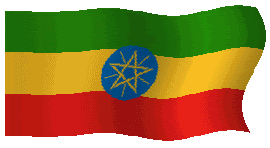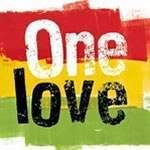 "Dossier", "Home study", "Referral"....In adoption blogs sometimes various terms are mentioned without an explanation or definition.
"Dossier", "Home study", "Referral"....In adoption blogs sometimes various terms are mentioned without an explanation or definition.“Language shapes the way we think, and determines what we can think about.” ~ Benjamin Lee Whorf
Few words in the Adoption Dictionary:
Adoption Plan – Refers to the birthparents’ decision to allow their child to grow up in an adoptive family. Adoption Social Worker – A trained professional who counsels birth and adoptive parents regarding adoption and parenting. At-Risk Placement or Legal-Risk Placement – The placement of a child into a family when birthparents’ rights have not yet been legally ended or when rights have been ended, but the appeal period has not expired. Disrupted Adoption – An adoption that fails before or after finalization. Finalization – The legal process which makes the adoption permanent and binding. Home Study or Family Assessment – A series of interviews, both joint and individual, and a home visit(s) that are part of the pre-adoption process for adoptive families. Interstate Compact – A law that requires written notice of the intention to place a child for adoption or foster care from one state with a family in another state. Post-Placement Reports – After the child is placed with an adoptive family, a social worker must visit the family and submit a report to the courts. The number of visits and reports varies from state to state. Waiting families – Families waiting to adopt a child.
Do you know what "positive adoption language" means? (PAL), positive adoption language, was created in the 1970's by Marietta Spencer. As Marietta states, "Positive or negative messages can be conveyed through language. Sometimes language is purely descriptive and explanatory without seeming to carry any emotional baggage; however, words are symbols that often carry a deeper meaning and are instrumental in creating feelings and attitudes. The constructive use of language requires discernment, thoughtfulness and skill." Therefore, as adoptive parents we feel it is important to provide education around (PLA) to our child, extended family and important people in our child's life. There are some issues that an adoptive parent has to deal with that a family with biological children might not. For example, it is not uncommon for strangers to come up and want to ask questions about your adoption, unfortunately sometimes the questions aren't always the most appropriate. Because your child will be with you during these interactions it is even more important to be aware of your response. So it is easier to deal with these questions, usually being caught off guard, by already understanding and consistently using positive adoption language when talking about your child. As we have discussed, instead of taking offense we plan to just respond (depending upon the importance of the person will depend upon the length of our response, the stranger versus grandma) with a "reframe" or education around the question. A child picks up on tones and references made in language by their parents and people around them, and will be aware of these tones and references when hearing about their adoption. It has been stated by multiple references that, "When we use positive adoption language, we say that adoption is a way to build a family just as birth is. Both are important but one is not more important than the other." This means that we choose to use words that show respect for all involved in adoption (birth parents, adoptees, and adoptive parents). Here are some examples of how certain words could reflect a negative implication.
Positive Adoption Language:
- Birth Parent
- Biological Parent
- Birth Child
- My Child
- Made an adoption plan
- Real Parent
- Natural Parent
- Own Child
- Adopted Child
- Abandoned
“There are hundreds of languages in the world, but a smile speaks them all.” ~Unknown Author

















Positive language is so critical to effective communication. This is a great blog to educate everyone about the importance of using words appropriate to this wonderful life affirming experience called adoption. If ever in doubt, let love being the language guide.
ReplyDelete